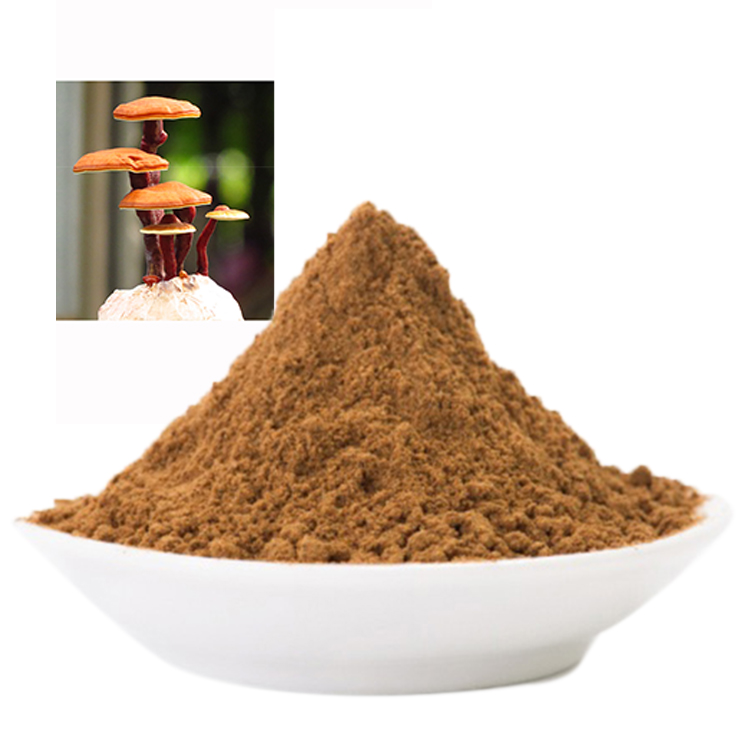Introduction
Bulk purchases of Reishi mushroom extract are common among businesses in the natural health and wellness industries. However, sourcing high-quality Reishi extract requires a comprehensive understanding of quality control standards, as the effectiveness of the product and its compliance with regulatory requirements depend on these standards. In this article, we will explore the key factors and steps to consider when evaluating the quality control standards for bulk Reishi mushroom extract purchases.
1. Understanding the Importance of Quality Control in Reishi Mushroom Extract
Consistency in Product Quality: Bulk purchases often involve large quantities, making it essential that each batch of Reishi mushroom extract is consistent in quality. Manufacturers must implement stringent QC procedures to ensure the extract's potency and purity remain uniform across batches.
Compliance with Regulatory Standards: Many countries have strict regulations governing the import and sale of herbal extracts. Adherence to these regulations, including the USDA Certified Ganoderma Powder standard, ensures the product's legality and acceptance in the marketplace.
Consumer Health and Safety: The primary goal of QC is to protect consumers. Proper quality control minimizes the risk of contamination and ensures that the extract retains its health benefits, such as boosting immunity and promoting overall wellness.
2. Key Quality Control Measures for Bulk Reishi Mushroom Extract
Organoleptic Testing: Organoleptic testing involves evaluating the extract based on sensory characteristics, including color, smell, and taste. This test ensures that the product is free from undesirable odors or flavors and meets visual standards. For example, Organic Reishi Mushroom Powder should have a deep, rich color and a mild, earthy scent.
Microbial Testing: Microbial contamination, including molds, yeast, and bacteria, can significantly impact the safety and shelf life of Reishi mushroom extract. Suppliers should conduct rigorous microbial testing to ensure that the product meets safety standards. Bulk buyers must request certificates of analysis (COAs) confirming that the extract is free from harmful microorganisms.
Heavy Metal Testing: Reishi mushrooms can absorb heavy metals from the soil during cultivation, which can pose a risk to human health. It is essential to test for heavy metals such as lead, arsenic, and cadmium. Reliable suppliers of Ganoderma Extract Powder will test their products for heavy metals and provide documentation to confirm compliance with the safe limits set by regulatory bodies.
Pesticide Residue Testing: The use of pesticides in mushroom farming can lead to residue contamination in the final product. Suppliers of certified organic Reishi extract, such as Organic Red Ganoderma Powder, must ensure that their products are free from pesticide residues by conducting pesticide residue testing. This is especially important for bulk buyers who need to guarantee the product's organic integrity.
3. Extraction Methods and Their Impact on Quality
Hot Water Extraction: This is the most common method for extracting polysaccharides, which are known for their immune-boosting properties. Hot water extraction ensures that the beneficial compounds in Organic Reishi Mushroom Powder are preserved, while unwanted substances are removed. Bulk buyers should verify that the supplier uses high-quality extraction methods to retain the extract's potency.
Alcohol Extraction: Alcohol extraction is often used to isolate triterpenes, which have anti-inflammatory and liver-supporting properties. Ganoderma Extract Powder obtained through alcohol extraction is beneficial for customers seeking these specific compounds. However, alcohol extraction must be carried out carefully to avoid any residual solvents that could affect the quality of the product.
Supercritical CO2 Extraction: This method uses carbon dioxide under high pressure to extract both polysaccharides and triterpenes while retaining a pure, full-spectrum profile of the Reishi mushroom. Supercritical CO2 extraction is considered one of the cleanest and most effective methods for obtaining high-quality Reishi extract.
4. Documentation and Transparency
Certificate of Analysis (COA): A COA is a crucial document that verifies the product's specifications, including the content of bioactive compounds, heavy metals, and microbial safety. Bulk buyers should request a COA for each batch of Organic Mushroom Extract Powder to ensure that it meets the required standards.
Traceability Documentation: Traceability ensures that the extract can be traced back to its source, including the farm and extraction facility. This is especially important for buyers looking for organic certifications, such as USDA Certified Ganoderma Powder. Suppliers should be able to provide detailed traceability reports to confirm the product's authenticity and production process.
Third-Party Testing Reports: To ensure unbiased quality control, bulk buyers should request third-party testing reports. These reports, conducted by independent laboratories, can verify the potency, purity, and safety of the extract. Third-party testing also ensures that the supplier is not manipulating the data provided in the COA.
5. Packaging and Storage Considerations
Packaging Materials: The packaging used for bulk Reishi mushroom extract should protect the product from exposure to light, air, and moisture. Ideally, packaging should be made from opaque, airtight materials such as foil-lined bags or sealed plastic containers.
Storage Conditions: Reishi extract should be stored in cool, dry conditions away from direct sunlight. Bulk buyers should verify that the supplier follows proper storage protocols to ensure that the product maintains its potency during transit and storage.
Shelf Life: Suppliers should provide clear information about the shelf life of bulk Reishi extract. The shelf life should be based on stability testing and should be indicated on the product's packaging or in the supplier's documentation.
Conclusion
Ensuring the quality of bulk Reishi mushroom extract requires a careful evaluation of quality control standards. By considering factors such as extraction methods, microbial and heavy metal testing, certification transparency, and proper packaging, bulk buyers can make informed decisions and ensure the quality and safety of their purchases. Adhering to these quality control measures will result in a superior product that meets both regulatory standards and customer expectations.
Key Product Keywords :
USDA Certified Ganoderma Powder, Organic Mushroom Extract Powder, Organic Reishi Mushroom Powder, Ganoderma Extract Powder, Organic Red Ganoderma Powder, Bulk Reishi Mushroom Extract, Third-Party Tested Reishi Extract, Hot Water Extracted Ganoderma, Reishi Extract for Immune Health, Reishi Powder for Antioxidants, Heavy Metal Free Reishi Extract, Organic Ganoderma Powder, Pesticide-Free Reishi Mushroom Powder, Clean Reishi Extract, Bioactive Polysaccharides, Alcohol Extracted Ganoderma, Supercritical CO2 Reishi Extract, Organic Reishi Mushroom Powder Supplier, Trusted Reishi Supplier, Bulk Mushroom Extract.
Read More:
Real Consumer Feedback on Ganoderma Extract: Honest Reviews & Global Insights
Thirty Days on Ganoderma Extract: What Changed in My Body?
Precautions and Contraindications When Taking Ganoderma Extracts: A Comprehensive Guide
Hangzhou Molai Biotech Co., Ltd has supply capacity 1200+ tons per year for mushroom powders and extracts, including the mushroom mycelium from modern technology of Deeply Liquid Fermentation and fruiting bodies from the grown real mushrooms to meet the different markets.
Hangzhou Molai Biotech Co., Ltd supplies the products both in Powders and Extracts for commercial using worldwidely, such as Cordyceps Sinensis, Cordyceps Militaris, Maitake Mushroom, Lion’s Mane Mushroom, Turkey Tail Mushroom, Reishi Mushroom, Chaga Mushroom etc.
We offer OEM and ODM services, could extract the products according to your special requirements, process the powders/extracts into Capsules, Tablets, Small Bags, Mushroom Bars, Mushroom Coffee etc.
Organic Lion's Mane Mushroom Extract
Organic Reishi Mushroom Extract
Organic Cordyceps Militaris Extract
Organic Turkey Tail Mushroom Extract
Organic Chaga Mushroom Extract
Organic Shiitake Mushroom Extract
Organic Maitake Mushroom Extract
Organic Tremella Mushroom Extract






